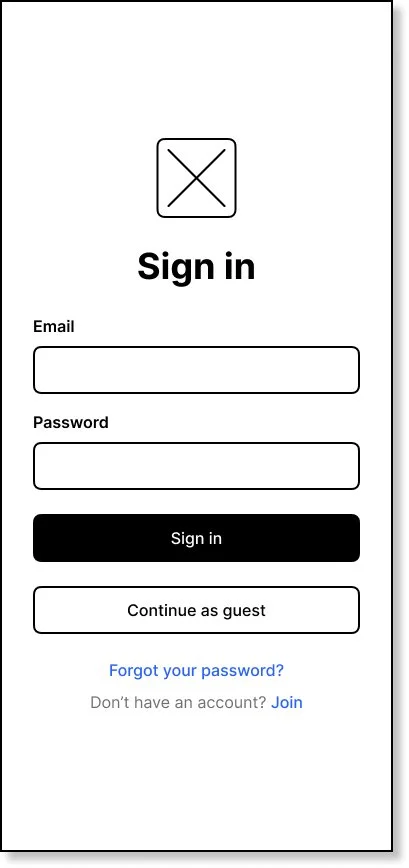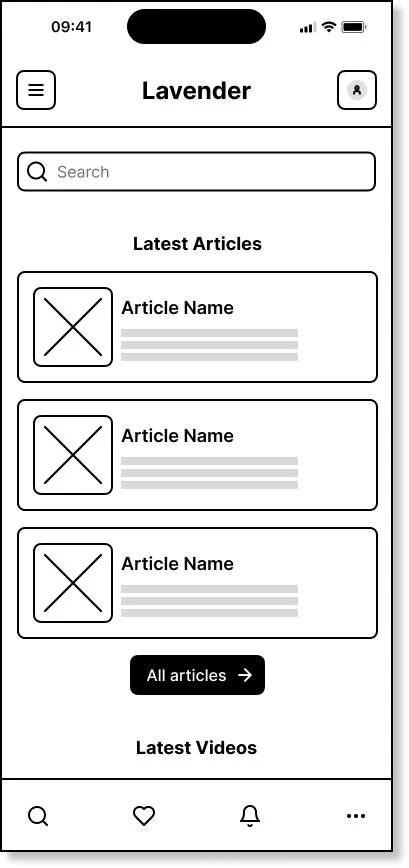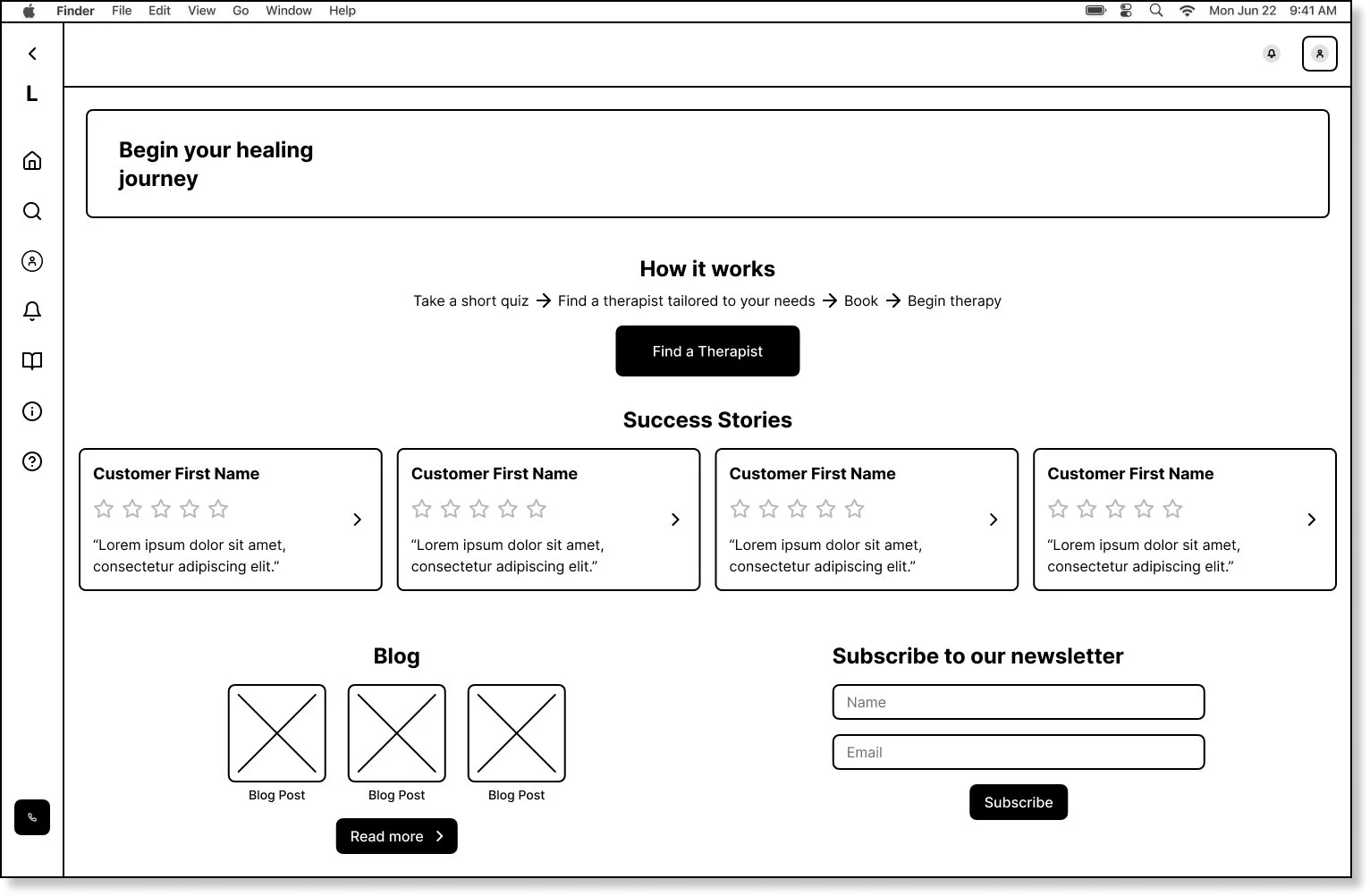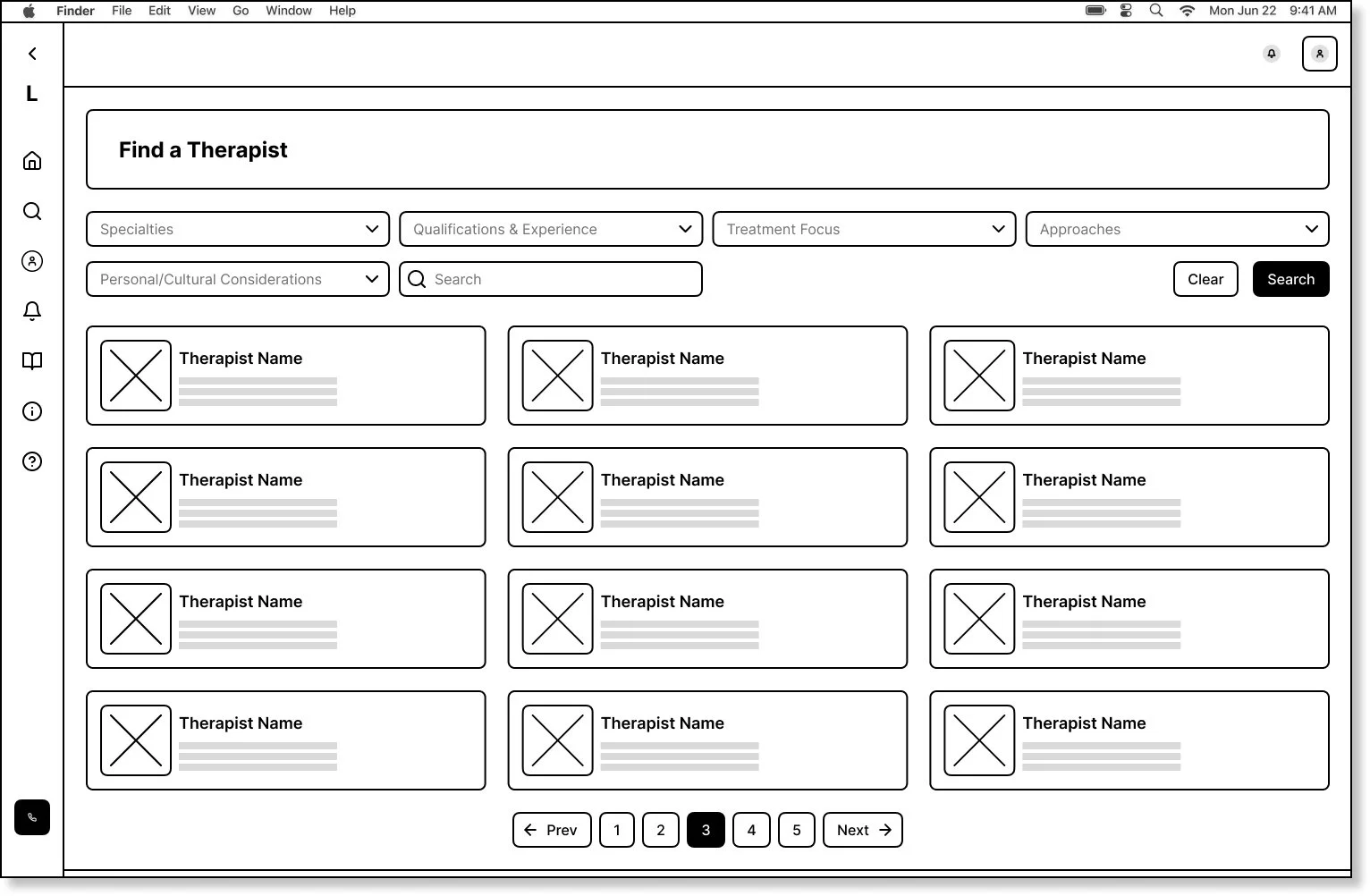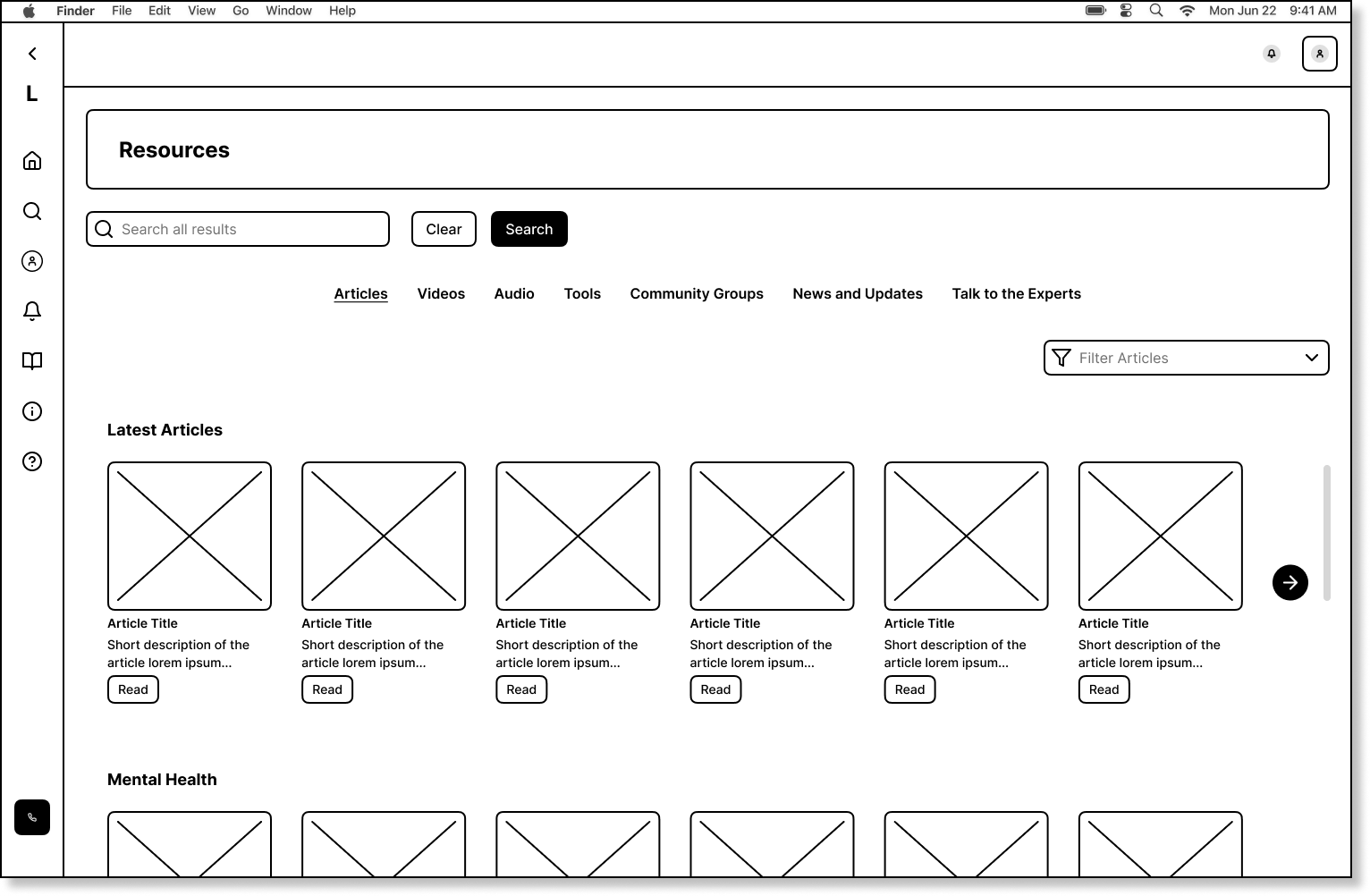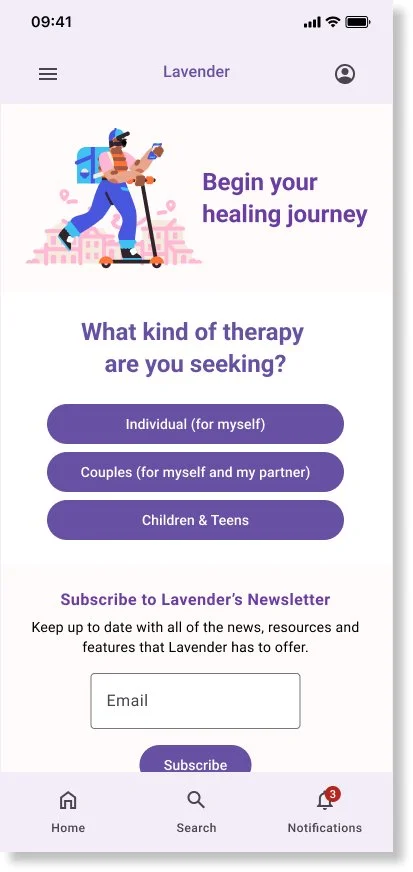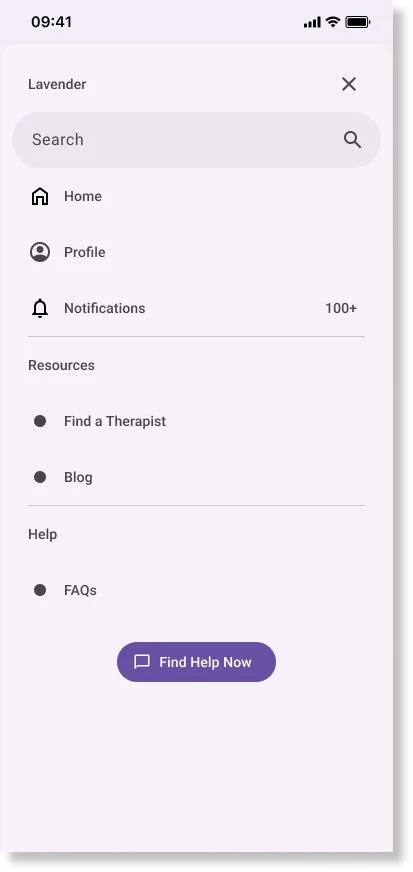Social good case study
Lavender Therapy Platform
Under revisions
•
updated case study coming soon
•
thank you for your patience!
•
Under revisions • updated case study coming soon • thank you for your patience! •
overview
I conducted interviews and created empathy maps to understand the users I’m designing for and their needs. A primary user group identified through research included young working professionals who recently graduated college and who need some guidance for the next steps in their lives.
This user group confirmed initial assumptions about the Lavender Therapy customers, but research also revealed that it is very important to users to narrow down the search for a therapist through a questionnaire or a quiz.
at a glance
-
An online therapy app for users who have limited access to affordable mental health services and wellness resources.
-
May 2022 - July 2022 (Currently going through iterations)
-
UX/UI designer creating an app for the Lavender Therapy App from conception to delivery.
-
Conducting interviews, paper and digital wireframing, low and high-fidelity prototyping, conducting usability studies, accounting for accessibility, iterating on designs, and responsive web design.
design/tool stack
Pain Points
competitive audit
To kick off the research, I conducted a competitive audit to see what similar platforms were doing well and where there were gaps we could improve on. I looked at things like first impressions, overall usability, key features, accessibility, and how intuitive the navigation felt. I also paid close attention to visual design and brand identity, as well as the tone and clarity of content. This gave me a solid understanding of what was working, what wasn’t, and how we could create a better, more user-friendly experience
Affinity diagram
user persona
alyssa, 22
Recent College Graduate | Bachelor’s Degree
New York City, NY
“I am a independent college grad who is feeling the shock of post-grad life. I don’t know where to start when it comes to looking for someone to help guide me through this new season of my life”
Alyssa is a recent college graduate and overwhelmed by the new chapter in life that she is experiencing. She is unsure of what she wants to do for her career and is battling with anxiety and depression. She is thinking about seeking therapy, but is intimidated by the process of starting, would love to connect with a community going through the same struggles, and needs to find a way where she can afford it.
Information architecture
Creating the information architecture helped me jump start the design process and organize how the Lavender Therapy Platform would be structured.
User journey map
Mapping Alyssa’s user journey revealed how helpful it would be for users to have access to order progress details.
Wireframes
Mobile wireframes
Desktop wireframes
Usability Study Findings
I conducted monitored usability studies with five people between the ages of 25 and 65. Each person had a different background in experience with ordering food online and provided a variety of insights to help improve the Lavender Therapy App.
round 1 findings
Profile Page needs to be easier to navigate to
The first page should be the Home Page, not a login page
round 2 findings
Colors need to be more accessible
Language needs to be more simple and easy to scan
mockups
Mockups and prototypes are going through revisions
•
updated mockups coming soon
•
thank you for your patience!
•
Mockups and prototypes are going through revisions • updated mockups coming soon • thank you for your patience! •
Mobile mockups
Old Website MOCKUP (before iterations)
accessibility considerations
layout
A minimal layout with large text and buttons are ideal to allow the users to easily find the resources they need without feeling overwhelmed or distressed.
colors
Colors need to be calming and accessible in order for users to easily see the screen elements
takeaways
Impact
The impact that the Lavender Therapy app will have on society is giving those with minimal financial resources the ability to have access to mental health services and resources in a way that is comfortable and private to them.
What I learned
While designing the Lavender Therapy app, I learned that the first ideas of the app are just the beginning of the design process. Usability studies and peer feedback kept improving the app during each iteration.
Next steps
Conduct another round of usability studies to validate whether the pain points users experienced have been effectively addressed.
Conduct more user research to determine any new areas of need.
let’s connect!
Get in touch with me at tjvannart@gmail.com, or simply submit a message through the form.








